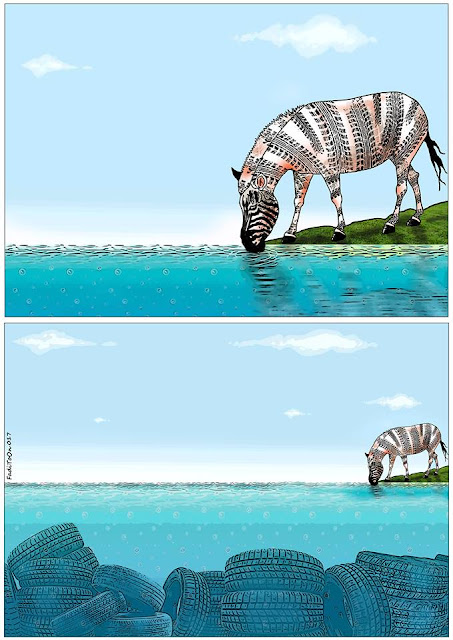Et stykke stakkels fortid
THE SAD REMNANTS OF A PASSION THAT WAS
ENGLISH TRANSLATION IN ITALICS
 |
| Foto: James Fisher/TheOneRing.net |
Nu er der kun 11 måneder til premiéren af den første af Hobbit-filmene, og med vished om betydningen af menneskelig svaghed er de første promotionfotos for længst lagt på nettet, så Tolkiens læsere kan rive håret ud på hinanden.
Hvem har mest ret, hvis den ene synes, at Thorin er blevet for ung? Eller er skuespilleren Richard Armitage den perfekte billedliggørelse af indre barndomsbilleder?
Promotion var lige så effektiv og passionen ikke mindre for nu over 100 år siden, da Adam Poulsen trådte op på Det Kgl. Teater som Harald Hårderåde, han som bankede islændingene, samlede Norge, muligvis grundlagde Oslo undervejs og faldt i kamp. En historisk person af mytologisk storhed med dragne sværd og armringe af guld, og på scenen omgærdet af al den kraft, som falske hårmængder kan give til figuren. Harald holder på øksebladet, intet mindre, mens han tager det store udblik:
In just 11 months' time the first film in the
Hobbit-trilogy will open, and calculating coolly on human weakness, the first
promotional photos have been online for quite a while now, making certain there
will be plenty of time for the Tolkien readers to tear out each other's hair.
Who is right, if someone finds that Thorin seems too
young? Or maybe the actor Richard Armitage is the perfect personification of the
mind's imagination created in childhood?
The promotion was as efficient and the passion no less
a 100 years ago, when Adam Poulsen entered the stage of the Royal Theatre in
Copenhagen as Harald Hårderåde, the one who bashed the Icelanders, made Norway
into Norway, and possibly founded Oslo along the way, before he fell in battle.
A historical figure of mythic grandeur with drawn sword and bracelets of gold,
and on the stage shrouded in the power that masses of false hair can add to a
character. Harald is gripping the blade of the axe, no less, while taking the
greater perspective on what is before him:
Men måske farligheden ikke helt har overlevet tiden. Det rammer tilbage på tegningerne, hvis værd som tegninger, vi knapt kan forholde os til. I dag ser vi kun markedsføringen, et stykke fortid som leger endnu fjernere, fiktiv fortid med overdrivelsen i positur og pålimet skægpragt, som tegneren naturligvis også har leget med. Vi ved, at Adam Poulsen er polstret op til lejligheden, for ham var det, der året før var det bøjelige siv under Julies balkon:
But perhaps the sense of potent danger has not quite survived the passing of time. Which is a blow to the drawings too. We hardly acknowledge them for any aesthetic value they might posses. Today we see nothing but a piece of marketing, a token of history playing with the idea of an even more remote, fictional piece of history; exaggerated in posture and the splendor of a glued on beard, which the cartoonist, of course, had to make the most of. We know that Adam Poulsen is padded up for the occasion, for he it was, who the year before played Romeo the Willowy Weed beneath the balcony of Juliet:
En ikke så lidt mere vovet påklædning som Romeo, hvor han nøjedes med gamacherne og udelod koften, der ellers var normen ved iscenesættelsen af "fortiden", så visse dele af legemet forblev høfligt ude af syne.
Normer og påbud, vi kan more os nok så meget over i dag. Alligevel synes costumieren til Lord of the Rings at have været i Det Kgl. Teaters gemmer, så Aragorn i Viggo Mortensens skikkelse genspejler den ulykkeligt forelskede Prins Buris med planer om at tilrane sig tronen i operaen Liden Kirsten:
As Romeo he was not a little daringly dressed, contenting himself with leggings and omitting a mantle, otherwise the norm when staging the "past", so that certain parts of the body remained politely out of sight.
Standards and requirements: We may very well mock them
today. Even so, the costume designer of "Lord of the Rings" could be
mistaken for having roamed through the stores of the Royal Theatre in
Copenhagen to let Aragorn as personified by Viggo Mortensen reflect Prince
Buri, unhappy in love and planning to usurp the throne in the opera "Liden
Kirsten" ("Little Kirsten"):
 |
| Foto: FantasyPlanet.cz |

Effekten er ikke helt den samme. Auraen mangler. Adam Poulsen og hans kolleger har mistet deres blodige tilhængere, hvis drømme giver lag til litteraturens slagsbrødre.
And yet, the effect is not quite the same. The aura is
missing. Adam Poulsen and his colleagues have lost their clamorous followers,
whose dreaming adds layers to the wildcats in literature.



